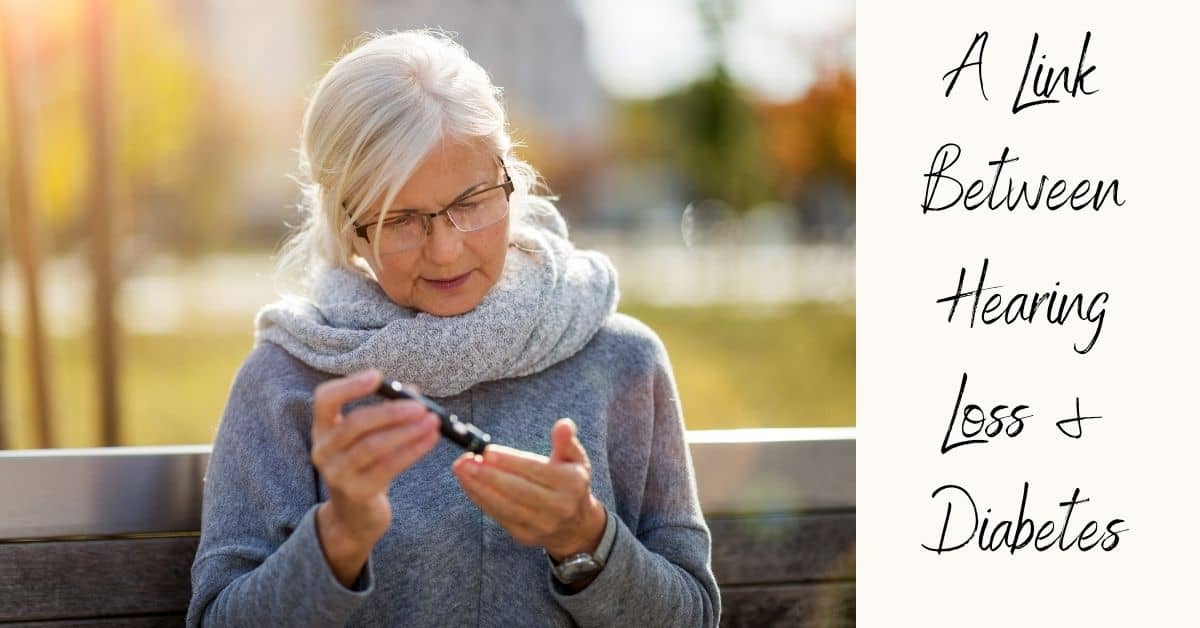
As you may already know, hearing loss is related to many other conditions in the body. Not only are those who have untreated hearing loss more likely to experience mental and social health conditions such as anxiety, depression, and social isolation, but they are also more likely to have physical health concerns. Studies have even shown a link between untreated hearing loss and cognitive decline, including dementia.
Although studies have shown that there is a connection, research is still underway to understand how these connections work. Diabetes is another health concern that has a higher rate among people with untreated hearing loss. A study of women over the age of 60 at the Henry Ford Hospital in Detroit showed that hearing loss was worse among women with Type I or Type II diabetes than those who do not have diabetes.
While researchers are trying to understand the nature of this connection, it is a good idea to become sensitized to the early warning signs of hearing loss as well as what you can do to prevent diabetes. Let’s take a look at each of these preventative measures.
Early Warning Signs of Hearing Loss
One of the most common early warning signs of hearing loss is having trouble in conversations. Some people struggle to understand children’s voices or people who speak especially softly. Others find that the context makes the biggest difference. Crowded places with many voices tend to be the most difficult, such as a busy restaurant or a social event. Other early warning signs are more subtle.
People with hearing loss tend to recede from social events and can even start to isolate themselves when they find it difficult to communicate. Rather than struggling to keep up in a conversation or insistently asking others to repeat themselves, some people with hearing loss tend to check out of the conversation.
If you have noticed yourself or a loved one with any of these tendencies, it is important to seek out a hearing test right away. Getting a solid diagnosis of hearing ability is a good idea for anyone, determining the baseline hearing ability for future treatment options.
Preventative Measures for Diabetes
Although some forms of diabetes seem to be hereditary, many can be managed, controlled, or prevented through lifestyle choices. Controlling blood sugar levels can happen with medication, but you can also follow a holistic approach to keeping dietary sugar levels in a healthy range. Although sugary foods, sweets, and candies might be an automatic source of lifestyle change, other healthy eating habits are a good way to promote diabetes prevention. A diet rich with whole grains, plenty of fresh fruits and vegetables, and low in red meat, sodium, and saturated fats has been shown to promote not only diabetes prevention but also a healthy heart.
Exercise is the other crucial component to diabetes prevention. High energy levels go beyond simply dragging yourself to the gym for a grueling spin on the treadmill. You can incorporate activity into your life through walking whenever possible, taking the stairs rather than the elevator, and doing stretching while you are watching television.
These forms of activity tend to be more sustainable over the long term than making yourself do vigorous exercise that you don’t enjoy. Finally getting regular check-ups is an important way to prevent letting diabetes get beyond the watchful gaze of the physician. By monitoring sugar levels, your doctor can be on call to prescribe the medical attention you need if diabetes becomes an issue, and these check-ups are necessary for other forms of disease prevention, as well.
Seeking Treatment for Hearing Loss
With the rapid advances in technology, you might find that the hearing aids suited to your needs offer features such as Bluetooth connectivity, rechargeable batteries, and apps to control the type and level of support you need based on your environment.
Although the connection between hearing loss and diabetes requires further research to know what causes what, it is a prudent choice to seek treatment for hearing loss under the guidance of a hearing health professional at the same time you are following diabetes prevention tips. Contact us to learn more.
